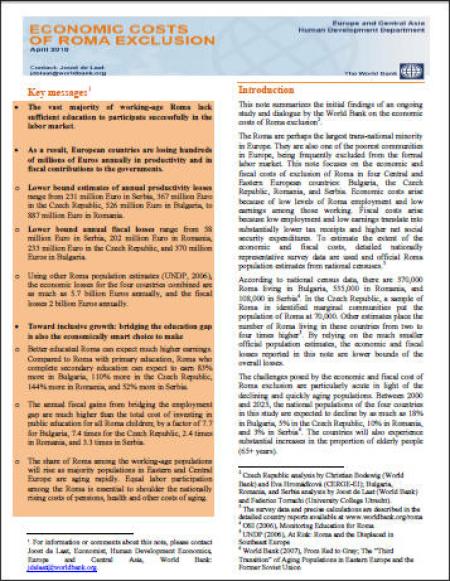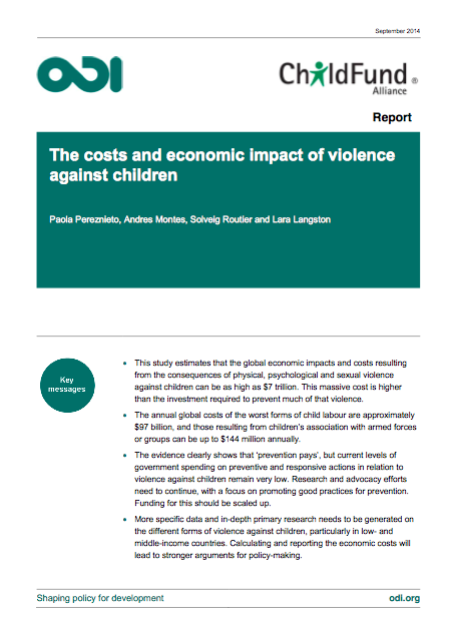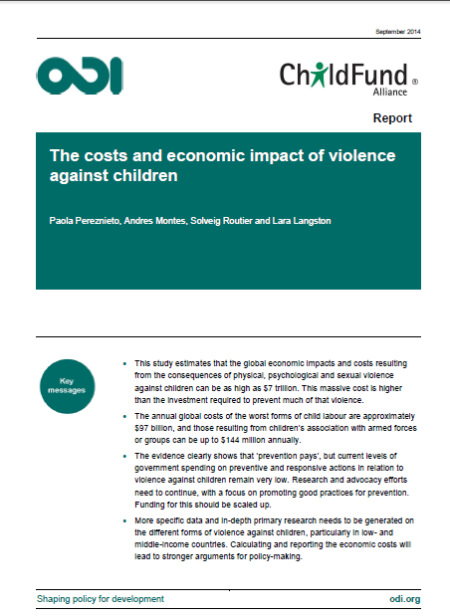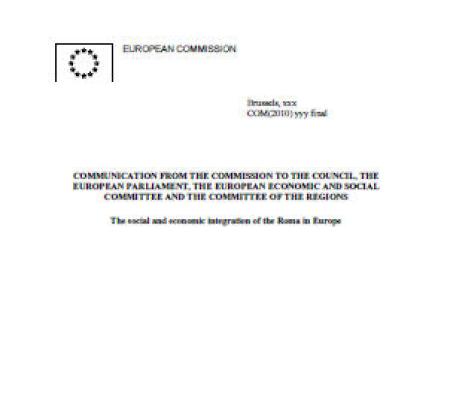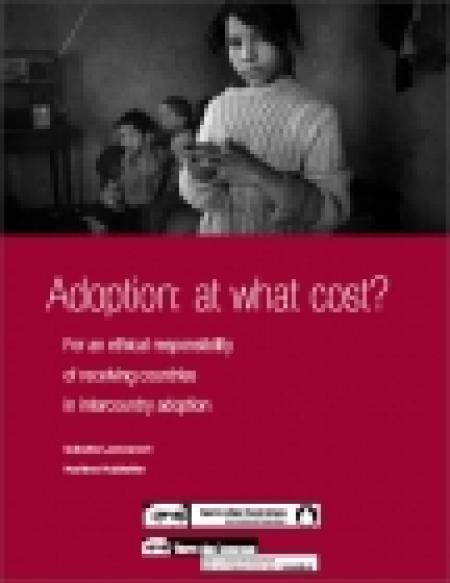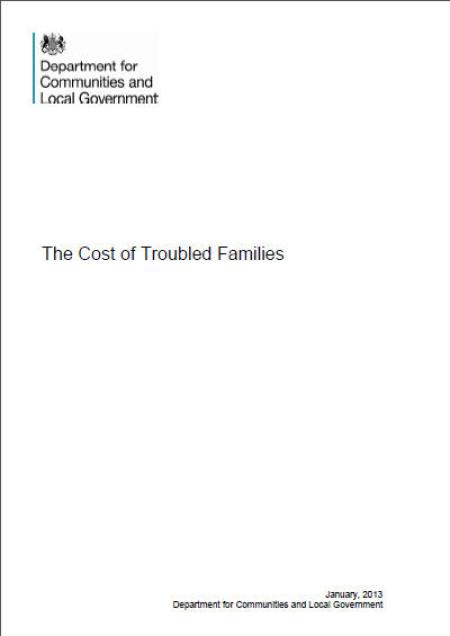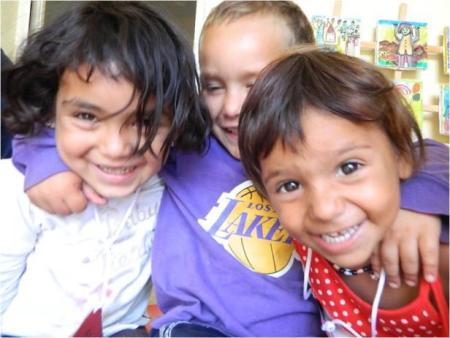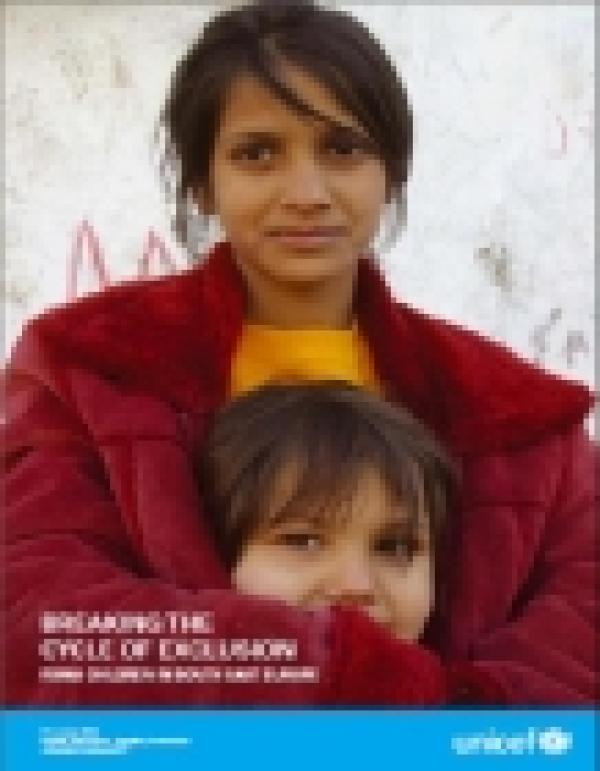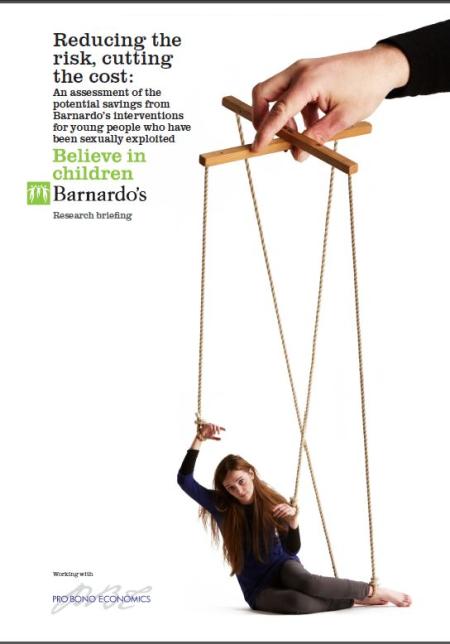
This note summarizes the initial findings of an ongoing study and dialogue by the World Bank on the economic costs of Roma exclusion. Key Messages: The vast majority of working-age Roma lack sufficient education to participate successfully in the labour market. As a result, European countries are losing hundreds of millions of Euros annually in productivity and in fiscal contributions to the governments. Lower bound estimates of annual productivity losses range from 231 million Euro in Serbia, 367 million Euro in the Czech Republic, 526 million Euro in Bulgaria, to 887 million Euro in Romania. Lower bound annual fiscal losses range from 58 million Euro in Serbia, 202 million Euro in Romania, 233 million Euro in the Czech Republic, and 370 million Euros in Bulgaria. Using other Roma population estimates (UNDP, 2006), the economic losses for the four countries combined are as much as 5.7 billion Euros annually, and the fiscal losses 2 billion Euros annually. Toward inclusive growth: bridging the education gap is also the economically smart choice to make * Better educated Roma can expect much higher earnings. Compared to Roma with primary education, Roma who complete secondary education can expect to earn 83% more in Bulgaria, 110% more in the Czech Republic, 144% more in Romania, and 52% more in Serbia. * The annual fiscal gains from bridging the employment gap are much higher than the total cost of investing in public education for all Roma children; by a factor of 7.7 for Bulgaria, 7.4 times for the Czech Republic, 2.4 times in Romania, and 3.3 times in Serbia. * The share of Roma among the working-age populations will rise as majority populations in Eastern and Central Europe are ageing rapidly. Equal labor participation among the Roma is essential to shoulder the nationally rising costs of pensions, health and other costs of aging.


